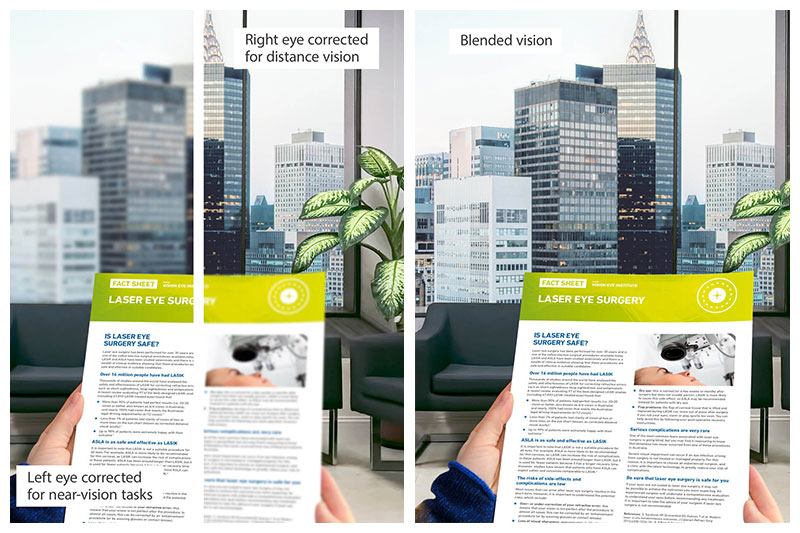PRESBYOPIA AND MONOVISION CORRECTIVE SURGERIES

Monovision laser surgery rectifies one eye for near vision and the other for distance vision. In this approach, the eye geared for distance will take on the primary role for tasks involving objects in the distance, such as driving or watching TV. Conversely, the near vision eye becomes more active when focusing on nearby objects like computer screens or books. Remarkably, the brain naturally selects the appropriate eye and effortlessly toggles between the two. This monovision correction is analogous to stereo surround sound – audio is channeled through right and left pathways and perceived by the respective ears, yet the separation goes unnoticed. Instead, you experience a unified audio stream without the need to consciously choose which ear to employ.
To determine your comfort with monovision correction, our office will replicate the procedure in the office using specialized eyeglass lenses. Most patients can readily determine if they can adapt to the technique. If more evaluation time is needed, trial contact lenses can also be utilized. With these lenses, patients can simulate Monovision for several days until they are confident in their decision. For those who do not acclimate well to the Monovision trial, an alternative route could involve laser vision correction to address distance vision in both eyes.
For individuals below 45 years of age, reading glasses are typically unnecessary after the procedure. However, if you are over 45 and opt against monovision, it’s likely that reading glasses will be required post-surgery. Individuals in this age bracket who seek to correct both near and far vision without monovision or the use of reading glasses might consider exploring Lens Replacement Surgery. Depending on your lifestyle, activities, and interests, our team of surgeons and staff can collaboratively determine the most suitable approach to vision correction that aligns with your visual objectives.

